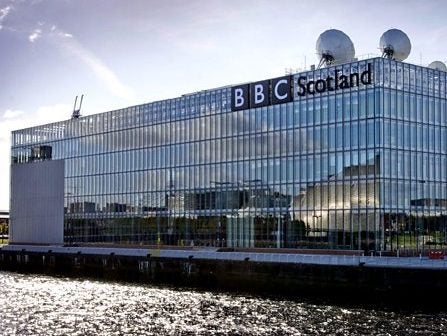
Ofcom has today given its final approval to a new BBC Scotland channel, which will create more than 80 jobs in news.
The new channel, which was first announced in February last year, will run a daily hour-long news programme at 9pm covering international, UK and national stories told from a Scottish perspective.
It was set to broadcast from autumn this year but has been delayed to February 2018.
The new channel will broadcast between midday and midnight every day, with its core content being shown from 7pm, and news coverage “at the heart of” the schedule.
The BBC said its investment in broadcast content in Scotland will also see 22 local democracy jobs created “to boost local authority reporting across the country”.
Tony Hall, BBC director-general, said: “Ofcom giving the green light for the new channel is great news. The new service has huge potential and I’m excited about what it can achieve.”
Ofcom has been assessing whether the public value offered by a new BBC channel in Scotland would justify any negative effects on “fair and effective” competition, and has now decided the plans can go ahead.
The broadcast regulator said newspaper groups and publishers, including the Scottish Newspaper Society, Scottish Daily Mail, Newsquest and the News Media Association, expressed concerns about the ability of newspapers to attract and retain staff in the light of the BBC’s proposal.
The SNS told Ofcom one publisher had already reported a job offer being rejected on the basis of a better offer coming from the BBC to join the new channel’s news team.
Ofcom said it did not believe the BBC’s proposal would disproportionately impact existing print news providers in Scotland, as only half of the 80 new journalism roles will be in newsgathering, with the other half in production.
“Given the level of newsgathering recruitment proposed and the fact that the BBC may recruit many of the roles from a range of sources, including in-house from the BBC itself as well as from the wider broadcasting sector, we remain of the view that the BBC’s proposal does not pose a significant threat to the ability of Scottish newspapers to attract or retain journalists,” the report said.
Some of the groups, including the SNS and NMA, also argued that the size of the proposed expansion of BBC Scotland’s news output was “disproportionate” for the needs of a one-hour news programme.
They raised concerns the BBC would use the additional journalists to expand the BBC’s digital written output, in particular with a focus on longer investigative pieces and bespoke online content, bringing the corporation in direct competition with established commercial news publishers.
In response, the BBC told Ofcom: “The additional investment in the news programme will be unlikely to drive an increase in the number of stories covered on BBC Online News Scotland.
“TV news coverage will always tend to cover a subset of stories published online.”
It added: “The material gathered for the 9pm news programme will enable BBC Scotland to provide an enriched and more distinctive online offering, focusing in particular on more investigative pieces which are currently not provided commercially.”
Ofcom found that the impact of the BBC’s investment in the new channel on its online output will be “relatively limited” and said it is “unlikely to have a significant adverse impact on print and online news provision” from commercial publishers.
But Newsquest chief executive Henry Faure Walker tweeted: “Very concerned about Ofcom decision to let BBC Scotland expand empire further with 80 Scottish journalists. Undermines strong independent news publishers.”
The broadcast regulator acknowledged the BBC’s expansion would have an impact on rival broadcaster STV’s revenue and profitability.
It forecasted a revenue loss for STV of £1.9m to £2.02m and said: “We recognise this may impact STV’s business decisions.
“However, STV will remain profitable and will continue to be the largest commercial channel in Scotland with the highest viewing share and weekly reach.”
The Scottish broadcaster also plans to cut up to 34 news jobs as part of a three-year restructure and growth plan covering its news teams.
In response to Ofcom’s consultation, STV said the areas most at risk as a result of the BBC’s plans were its expenditure on content and services specifically for Scottish audiences.
The BBC also announced today that it will also bring another 60 technology roles to Scotland with the creation of a new design and engineering hub in Glasgow.
Donalda MacKinnon, BBC Scotland director, said: “Bringing another 60 highly-trained technology roles to Scotland, on top of the 50-plus we already have, is a sign of the BBC’s commitment to spreading our investment across the UK.
“These new roles, added to the 80-plus jobs being created in news and the new channel, will build on Scotland’s growing reputation as a media centre of real clout.”
Picture: BBC
Email pged@pressgazette.co.uk to point out mistakes, provide story tips or send in a letter for publication on our "Letters Page" blog
